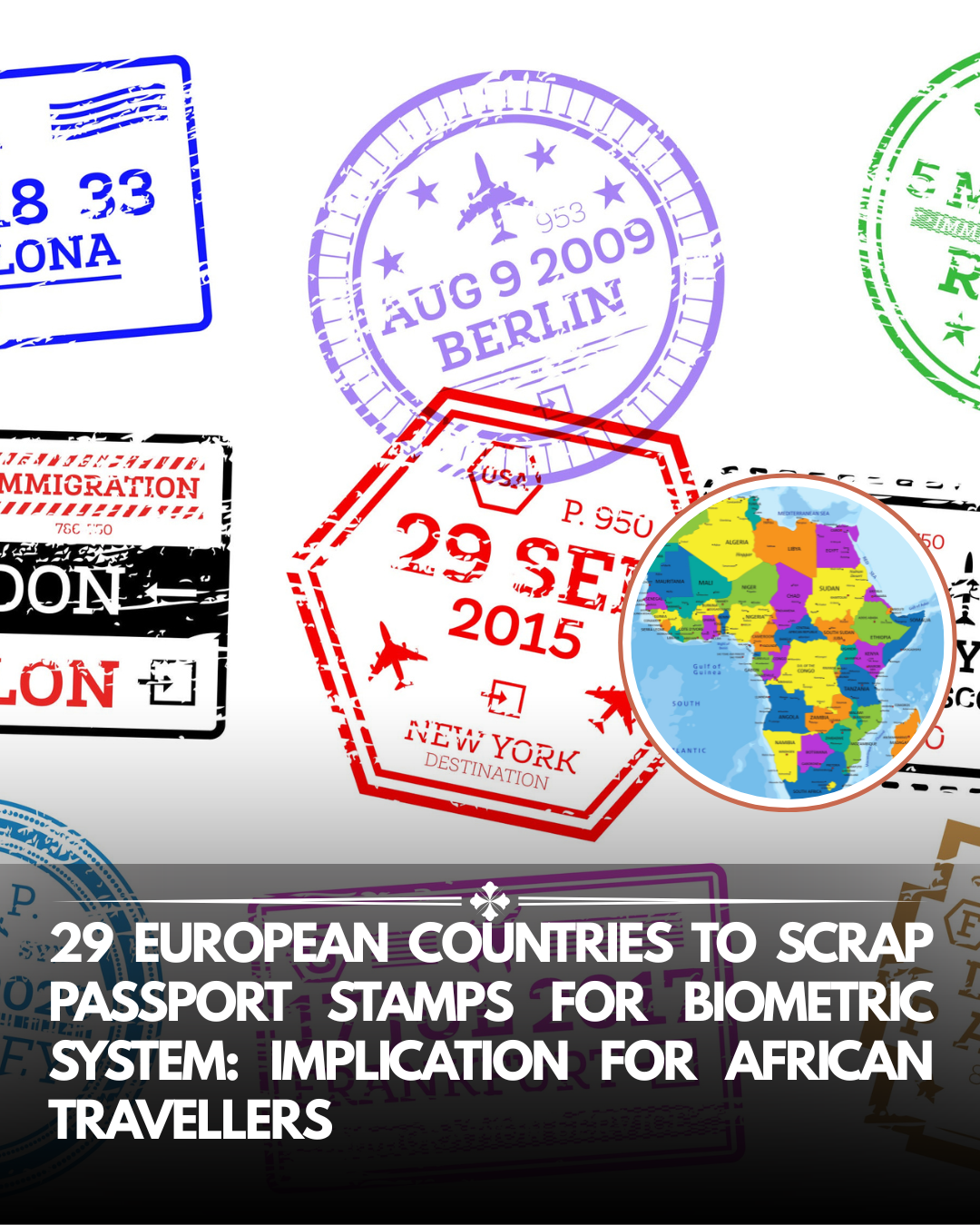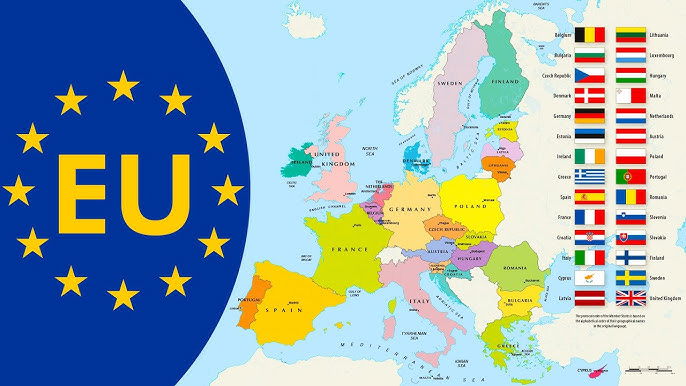29 European countries to scrap passport stamps for biometric systems: Implications for African travelers

Implications for African Travelers
For African travelers, the change introduces both opportunities and challenges. On one hand, digital border controls may shorten processing times and strengthen travel documentation integrity.
Since October 12, twenty-nine European Union countries will replaced traditional passport stamps at border control with a new Entry/Exit System (EES) that uses biometric systems.
- The EU is set to introduce a new biometric Entry/Exit System (EES) to replace the traditional passport stamps
- This shift marks the end of the practice of passport stamping, which many travelers valued as tangible proof of international journeys.
- Other global regions, including the UK and the U.S., are adopting similar biometric systems in travel management.
- While promoting efficiency and fraud prevention, the rise of biometric systems has raised concerns regarding data privacy and potential technological challenges.
By April 2026, European countries will rely on biometric systems such as facial images, fingerprints, and digital records to fully replace traditional passport stamps, long a symbol of travel and international movement.
The EU is not alone in this shift. The United Kingdom rolled out its electronic travel authorization (ETA) scheme earlier this year, joining countries such as Australia, Singapore, Hong Kong and Argentina that abandoned stamps years ago.
The United States is also gradually eliminating physical stamps while expanding facial recognition and trusted traveler programs such as Global Entry, TSA Precheck and Clear Plus.
Authorities maintain that the new systems will enhance efficiency, reduce fraud and strengthen border management. However, the shift also marks the end of a longstanding practice, as passport stamps, once valued as tangible proof of movement across borders disappear. For many travelers, a passport filled with stamps served as both documentation and a personal record of global journeys.

The new biometric Entry/Exit System (EES) will replace the traditional passport stamps to enhance border security and efficiency
Implications for African Travelers
For African travelers, the change introduces both opportunities and challenges. On one hand, digital border controls may shorten processing times and strengthen travel documentation integrity.
On the other, the reliance on biometric registration raises concerns around data privacy, system reliability and the potential for technical delays, issues that may disproportionately affect travelers from countries already facing strict visa regimes and lengthy border procedures. In regions where international travel remains aspirational for many, the loss of the passport stamp as a visible record of mobility may also carry symbolic weight. While no African country has formally announced plans to follow suit, the European move may accelerate adoption of similar systems across other regions.
Countries Implementing the New System
Austria, Belgium, Bulgaria, Croatia, Czechia, Denmark, Estonia, Finland, France, Germany, Greece, Hungary, Iceland, Italy, Latvia, Liechtenstein, Lithuania, Luxembourg, Malta, Netherlands, Norway, Poland, Portugal, Romania, Slovakia, Slovenia, Spain, Sweden and Switzerland.
The phasing out of physical stamps underscores the broader shift towards paperless travel and biometric verification worldwide. For African travelers, adaptation will be essential as Europe and other regions embed digital identity at the core of border management.


